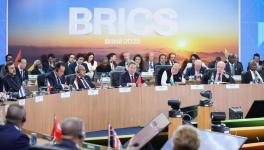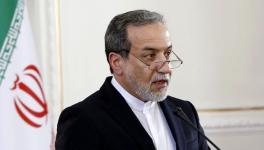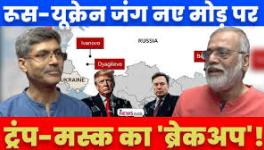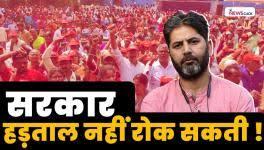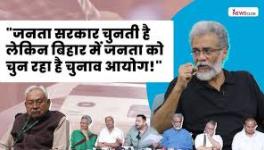US, Iran Edging Back to Negotiating Table
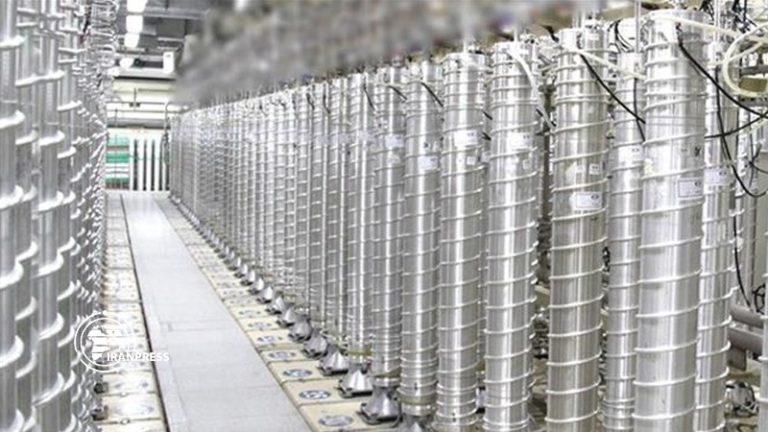
New generation of centrifuges at Iran’s Natanz nuclear enrichment plant
The frozen lake of US-Iran confrontation is generating a pinging sound. The cracking of the ice is yet to produce that loud booming thunderclap. But these are early days.
It was only last Thursday that the US and the three European states who are party to the JCPOA (2015 Iran nuclear deal) — Germany, France and UK, or the ‘E3’ — lobbed a joint statement across the court to Tehran, whereby the Joe Biden Administration announced its willingness to return to diplomacy with Iran.
It was an opening move, where the Biden administration merely reiterated its position that it will return to the JCPOA if Tehran returns to strict compliance with it. The E3 and the US seek to strengthen the JCPOA to address broader security concerns related to Iran. But certain other moves went along with it on the same day:
- Washington expressed its acceptance of an invitation from the European Union High Representative to attend a meeting of the so-called P5+1 countries – Britain, China, France, Germany, Russia and the United States – with Iran for an informal ‘diplomatic conversation’ to chart a way forward;
- The Biden administration rescinded the Trump administration’s decision in September 2020 to invoke “snapback sanctions” worldwide at the United Nations—a provision under Security Council Resolution 2231 – that was earlier rejected by the other 14 members of the council; and,
- The Biden administration also informed Iran’s UN Mission in New York that it had removed Trump’s travel restrictions on its diplomats in New York, which allows them now to move anywhere within a 25-mile radius of the UN Hqs. Some Iranian officials also may be allowed to travel to the UN.
A conversation between US and Iranian diplomats in an informal setting certainly serves a purpose insofar as it is a follow-up on an idea floated by Iran’s Foreign Minister Javad Zarif during an interview with the CNN on February 1 that the EU foreign policy chief Josep Borrell could assume the role of coordinator and create a mechanism to choreograph the steps to be taken simultaneously by both Iran and the US sides to achieve JCPOA reinstatement.
By Saturday, Iran’s Deputy Foreign Minister Abbas Araqchi, the country’s chief nuclear negotiator, was on record that Tehran too is considering the proposition from Brussels and would “respond to this proposal [on informal meeting] in the future.”
Now, it it easy to see that the retraction on the “snapback sanctions” and the removal of restrictions on Iranian diplomats are necessary pre-requisites of a US-Iranian engagement.
Meanwhile, on Friday, Biden said at the virtual Munich Security Conference that the US is driven to “reengage in negotiations” to revive the JCPOA. He added a positive note, “We need transparency and communication to minimise the rise of strategic misunderstanding or mistakes.”
On Sunday, White House National Security Advisor Jake Sullivan said that the US has started talks with Iran over the return of at least five American hostages whom Tehran is holding. “We have begun to communicate with the Iranians on this issue,” Sullivan said.
On Sunday, again, Rafael Grossi, the head of the IAEA, met with Iranian officials in Tehran to try to maintain his inspectors’ ability to monitor Tehran’s nuclear program. After the talks, a joint statement was issued, which suggests that “a temporary bilateral technical understanding” has been reached for a 3-month period ahead to continue necessary verification and monitoring activities.
But the deal also calls for less access for IAEA inspectors and no more snap inspections. That is to say, Iran is sticking to its stance that unless the US lifted the sanctions, it will soon abandon the Additional Protocol of the JCPOA, but is only partially curbing the inspectors’ activity at this point.
Broadly, both the US and Iran are slowly but steadily edging back to the negotiating table. Both want the other party to go first, and neither would allow perceptions of weakness to form or that they’re acting under pressure. It’s a delicate tango where both are also compromising while appearing to be otherwise.
The Sunday Times newspaper carried a sensational report yesterday quoting a national security source that the US is considering sanctions relief for Iran as a first step towards reviving the 2015 nuclear deal. If so, Washington is about to make the first move on the expectation that Tehran would reciprocate with some significant compromises.
“Sanctions relief is definitely coming, not today or tomorrow but it is coming,” Sunday Times quoted its source. But the catch is that Iran can return to the JCPOA by ceasing to enrich uranium over the limit set by the deal, exporting most of its stockpile, and warehousing banned centrifuges. Whereas, the Biden administration has far more difficult path to traverse by way of untangling scores of Trump-era financial, economic, trade, targeted personal and business sanctions and lift those that violate the JCPOA.
One possibility is that the Biden Administration may move in this direction after the ‘diplomatic conversation’ that the EU foreign policy chief is facilitating. In Tehran’s estimation, the lifting of US sanctions is now a foregone conclusion, only a matter of time. There is much optimism that the White House will not allow any interference by the US’ regional allies.
A commentary in Iran’s official news agency IRNA draws satisfaction that President Biden “gave a cold shoulder” to Israeli PM Benjamin Netanyahu and has not forgotten the latter’s defiant behaviour toward President Obama by attending a congressional hearing in Washington without being invited by the administration and criticising the administration’s negotiations with Iran. It had “angered the then Vice President Joe Biden who shouted that no authority in Israel has right to humiliate US president. Netanyahu has been advised to avoid direct confrontation with Biden administration.”
Again, there is talk that the White House intends to release a redacted version of the CIA report on the brutal killing of the Saudi journalist Jamal Khashoggi at the consulate in Istanbul in 2018. If the report holds the Saudi Crown Prince as culpable for the murder, it will rock the US-Saudi relations. Biden has made his aversion toward the Crown Prince known by letting it be known that he will only interact with King Salman.
Clearly, there is a profound sense of unease in Saudi Arabia and the UAE over the Biden administration’s decision to engage with Iran. Conceivably, Tehran senses that a historic moment is at hand marking the end of the US’ decades-old strategy to encircle Iran with an alliance of the Gulf Arab states and Israel.
As the situation around Iran begins to transform through the coming weeks and months, the West Asian politics and the regional security scenario will change beyond recognition. The Western powers are for the first time talking about the imperative need of reconciliation between and amongst the regional states of the Persian Gulf instead of fuelling the regional rifts and capitalise on them.
In their statement of February 18, the US and E3 “expressed their joint determination to work toward de-escalating tensions in the Gulf region.” By force of circumstances, the Western powers are appropriating an idea that Russia and China have been expounding all along.
Get the latest reports & analysis with people's perspective on Protests, movements & deep analytical videos, discussions of the current affairs in your Telegram app. Subscribe to NewsClick's Telegram channel & get Real-Time updates on stories, as they get published on our website.














